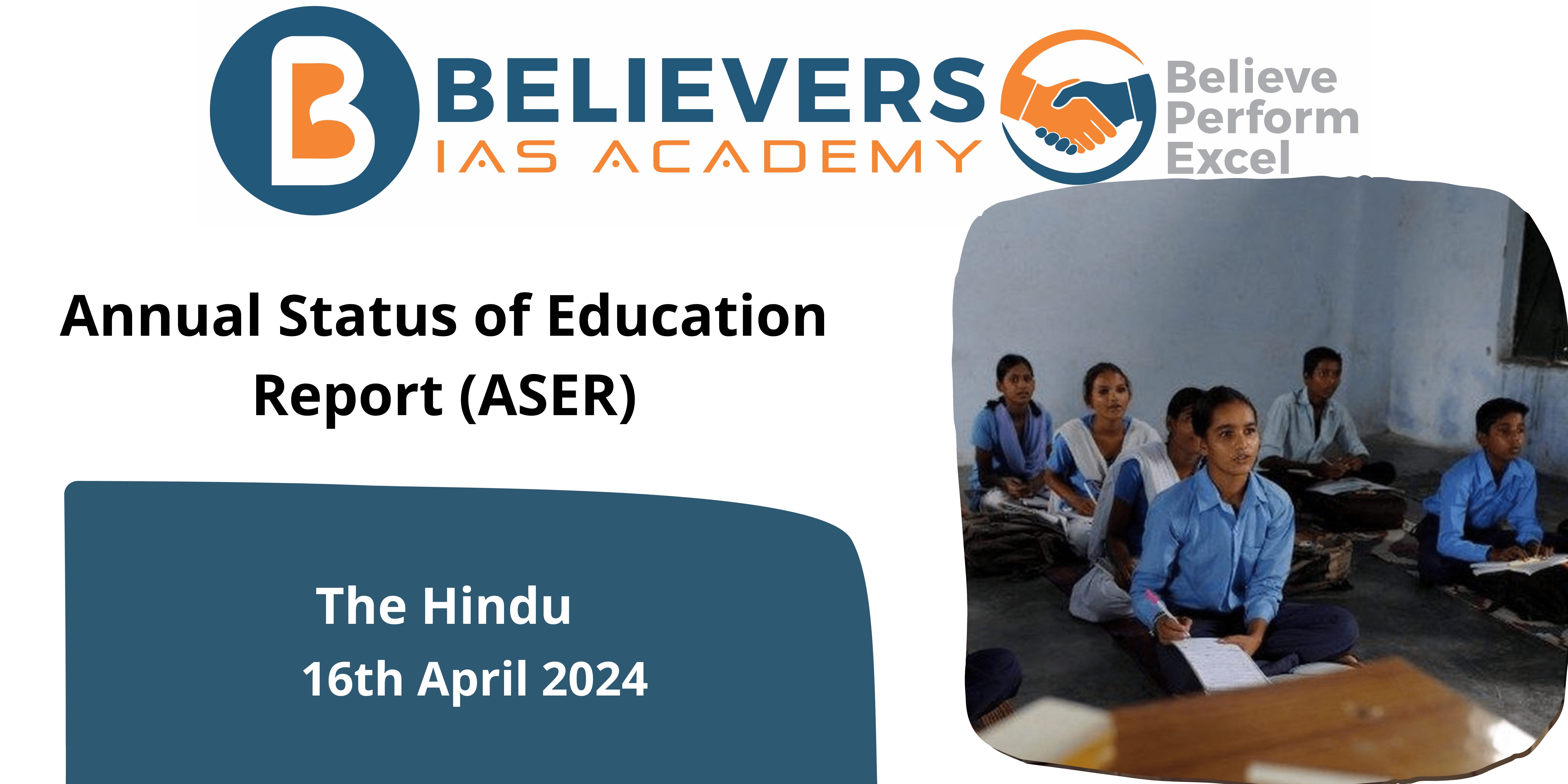Annual Status of Education Report (ASER)
Context:
Annual Status of Education Report (ASER) is a significant survey conducted by the Pratham Education Foundation, serving as a vital source of information on children’s foundational skills in India.
Relevance:
GS-02 , GS-03 (Social Empowerment, Education)
Overview of ASER:
- ASER is the oldest survey of its kind in India, using Census 2011 as a sampling frame. It provides insights into children’s foundational skills in reading and arithmetic across rural districts.
- This survey covered 28 rural districts across 26 states and focused on 14-18-year-olds’ activities, abilities (including digital skills), and aspirations. It revealed that 26% of youths in this age group cannot read a standard text in their regional language.
- ASER 2023 Findings: The survey indicated that a significant portion of 14-18-year-olds with inadequate reading skills were enrolled in lower grades or not in any educational institution. Moreover, attendance in secondary grades, as highlighted by the NSSO, was alarmingly low.
- Youth Aspirations: ASER 2023 also shed light on youths’ aspirations, with many aspiring for higher education. However, there was a lack of exposure to various professions, leading to limited career awareness among youths.
- Challenges:
- ASER highlighted stagnant or declining learning trajectories, with many youths lacking basic reading skills even in higher grades.
- It emphasized the importance of addressing foundational skills early to prevent further academic lag.
Recommendations:
- To address the challenges identified by ASER, there is a need for community-led initiatives to promote reading and literacy, such as establishing community libraries.
- Additionally, leveraging digital technology to provide educational resources and guidance can help bridge the gap in learning.
- ASER findings underscore the importance of policy interventions, such as the Right to Education Act and the National Education Policy 2020, in ensuring equitable access to quality education for all children. However, there is a need for concerted efforts to translate policy objectives into effective implementation.




